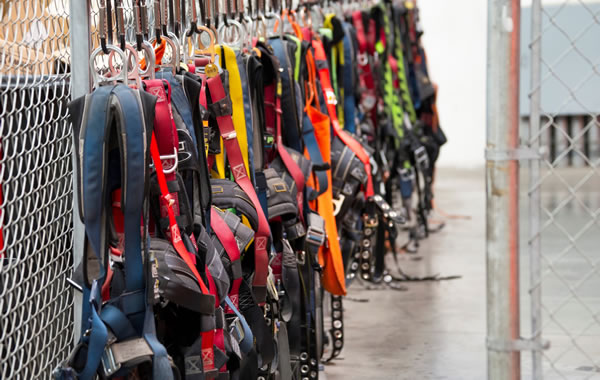Government Contracting Database
Suspension of Work and Standby – Sample Argument
The Contract Was Not Complete and Suspension Occurred at the Direction of the Corps
The contract called for the placement of approximately 9000 tons of stone over a twelve (12) day period. The Corps halted CONTRACTOR on the fifth day of the contract after approximately 2000 tons had been placed. Consequently, the contract was not complete and a suspension of work occurred at the direction of the Corps.
Paragraph 10 of the contract (FAR 52.212-12), labeled suspension of work, provides that if the contracting officer orders the suspension, delay or interruption of the contract for an unreasonable period of time, an adjustment will be made. This standard contract clause is intended to allow the contractor to be compensated for delays or suspensions, provided the contractor is not the cause. See Toombs & Co. v. United States, 4 Cl. Ct. 535, 549 (1984).
The suspension of work clause further provides that the suspension order by the government must be in writing. However, the lack of written notice does not vitiate the government’s responsibility. The government’s unreasonable delay in response to a contractor’s request for further information or instructions will be treated as a constructive suspension of work. “It is well settled that relief is available for a constructive suspension brought about by the Government’s delay or inaction.” Piland Corporation, 78-2 BCA 13,227 (ASBCA, May 8, 1978). Here, the constructive suspension occurred when the Corps required CONTRACTOR to stop work and standby to await further instructions on whether more stone would need to be placed. When CONTRACTOR personnel repeatedly queried as to the status of the contract, they were told to stand-by.
The Board decision in Federal Contracting, Inc., 84-2 BCA 17,482 (ASBCA, June 11, 1984) supports CONTRACTOR’s argument. In Federal, when the contracting officer failed to respond to the contractor’s letter advising the CO that the contractor could not proceed without the government’s changes, the contract board of appeals concluded that “[t]he contracting officer’s failure to respond to Federal’s notice was a constructive suspension.” Id.
In M.E. Brown, 91-1 BCA 23,293 (ASBCA, August 28, 1990), the board of contract appeals determined that suspension followed by termination for convenience resulted in a contractor being entitled to recover the costs for being placed on standby. Brown was a sole proprietor who bid on a contract to renovate an air-conditioned parachute drying tower at the Patrick Air Force Base. Inspection revealed the presence of asbestos and the owner’s engineers informed the contractor he was on standby until a change order modified the contract even though a notice to proceed had never been issued. The contractor continually spoke with the contracting officer concerning the status of the contract and was told to wait while the situation was considered. The contractor notified the government that his costs and claims were continuing to accrue. Finally, on December 10, 1988, the government issued a termination notice. Although the only issue before that Board was that of entitlement, the Board concluded that the contractor was entitled to recover the following if they could be proved:
- the costs of visits to the work site and the government offices gathering information concerning the contract;
- costs of performance due to the suspension including an amount of unabsorbed overhead attributed to the government’s delay;
- the costs incurred as a result of idle hours;
- the costs of idle equipment.
Brown, 116,818-819. The Board also noted that the fact “that an actual [written] suspension order had not been issued was immaterial since a constructive suspension has the same effect and consequences as an actual suspension order, and relief should be granted as if an actual suspension order had been issued.” Brown at 116,816.
Thus, under Brown, the fact that the contracting officer only issued a verbal suspension order when it told CONTRACTOR to “stand-by”, makes no difference in CONTRACTOR’s entitlement to recovery.
In order to recover “standby” costs, the contractor must make a prima facie showing that it had to stand by and that the delay affected its operations in such a way that it was not practical to undertake the performance of other work. Gregory Constructors, Inc., 88-3 BCA 20,934 (ASBCA, May 31, 1988), relying on Capital Electric Company v. United States, 729 F.2d 743 (Fed. Cir. 1984).
In Tom Shaw, Inc., 90-1 BCA 22,580 (DOT BCA, January 9, 1990), the contractor was awarded a contract to repair the motors aboard a Coast Guard cutter. As with seemingly all contracts, changes arose which resulted in delays and increased costs. After a separate entitlement hearing, the Board held a quantum hearing on the claims.
In reaching its decision, the Board noted that:
When contract performance time is extended as the result of changes, the increased costs for that period are recoverable. The damages recoverable include standby costs for idle time during the period of performance, to the extent that equipment, although idle, must remain on the site or remain exclusively dedicated to the project, in order to assure the ability to perform if the stop work order should be lifted. Id. (Emphasis added.) See also Les Killgore’s Excavating, 86-3 BCA 19,117 (ASBCA, May 21, 1986) (recovery requires a showing that it was necessary to have the equipment on standby in order to assure meeting contractual due dates in the event the full minimum quantity was ordered); and Rehabilitation Specialists, 83-2 BCA ? 16,553 (ASBCA May 12, 1983)(claim sustained where the contractor was ordered to hold up completion of emergency repair work and to keep the full crew in readiness and maintain work already performed).
In Tom Shaw, the Board recognized that when the government requires a contractor to idle valuable equipment, it should pay a measure of compensation. Id. at 113,337. Here, CONTRACTOR kept the towboats M/V Charles K and M/V Fort Smith in a constant state of readiness. This required a crew to keep the generator running and starting air up to pressure 24 hours per day. M/V Charles K was kept in a constant state of readiness to shift the location of the fleet as necessary to keep the barges from grounding or being damaged while waiting for word from the Corps. In addition, M/V Fort Smith was used to make inspections of the fleet while harbored at Pine Bluff during the delay. Clearly, CONTRACTOR kept its fleet at the site and dedicated to the contract at the Corps’ request.
When considering quantum of recovery under a suspension, whether a constructive suspension or an actual one, the Board “should consider how and when the Government slowed progress, then estimate the number of full days of suspension, and grant an equitable adjustment as if an actual suspension order had been issued.” R.J. Crowley, Inc. 82-1 BCA? 24,499 (GSBCA, October 15, 1991) at 122,270.
In Willie J. Brown dba WB Construction Company, 91-3 BCA 24,184 (ASBCA, July 17, 1991), the Government would have been liable for the costs incurred by a contractor during a work suspension if the contractor had incurred any costs. The Board concluded that because the contractor did not maintain any personnel or equipment at the site during the suspension and was also able to take on five other jobs, the contractor had incurred no overhead costs due to the suspension. By implication, if a contractor does keep equipment and personnel at a site, as did CONTRACTOR, and was unable to take on any more work because the equipment was held in readiness, then recovery is permissible. E.g., M.E. Brown, supra.
Conclusion
Under M.E.Brown, CONTRACTOR can recover provable standby costs even though the contract was ultimately terminated for the government’s convenience. Here, CONTRACTOR was told to stand by while tests were performed to determine if more stone had to be placed at Number 4 Lock. This meets a reasonable reading of Tom Shaw that the equipment or labor be held in readiness and dedicated to the contract.
Updated: September 9, 2017
Looking for additional government contracting resources?
Search Our Database





























